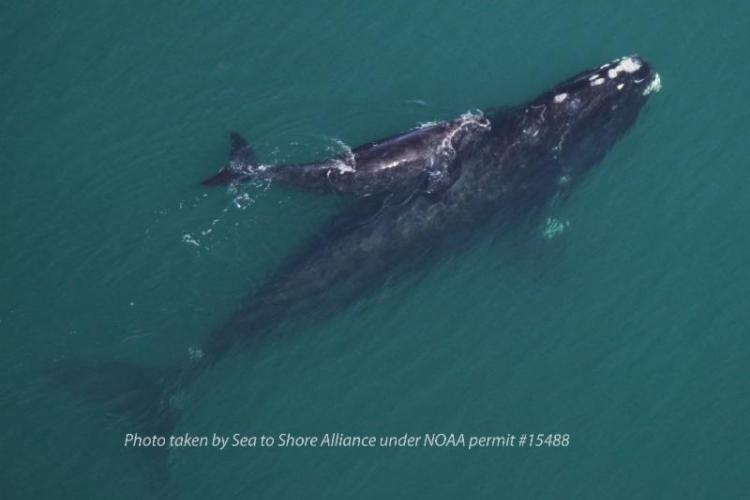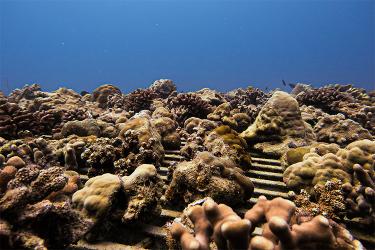North Atlantic right whales are on the move along the Atlantic coast of the U.S. With an unprecedented 16 right whale deaths in the past six months, NOAA is cautioning boaters to give these endangered whales plenty of room as they migrate south. The agency is also asking fishermen to be vigilant, remove unused gear from the ocean to help avoid entanglements, and use vertical lines with required weak links and breaking strengths.
North Atlantic right whales are protected under the U.S. Endangered Species Act and the Marine Mammal Protection Act. Scientists estimate there are as few as 450 right whales remaining, making them one of the rarest marine mammals in the world.
"We are very concerned about the future of North Atlantic right whales," said Barb Zoodsma, right whale biologist for NOAA Fisheries. "We lost 16 right whales in U.S. and Canadian waters this year. This is troubling for a population of about 450, particularly because we estimate that only about 105 of those are breeding females who are producing fewer calves.”
NOAA Fisheries, the Georgia Department of Natural Resources, the Florida Fish and Wildlife Conservation Commission and the U.S. Coast Guard collectively remind boaters, anglers and coastal residents that North Atlantic right whale calving season begins in mid-November and runs through mid-April and that boaters should stay alert and keep their distance.
Every winter, right whales travel more than 1,000 miles from their feeding grounds off Canada and New England to the warm coastal waters of South Carolina, Georgia and Florida's east coast.
"Our southern waters are where right whales give birth and nurse their young, making it extremely important for people to be aware of the whales' movement and migratory patterns," said Tom Pitchford, wildlife biologist for the Florida Fish and Wildlife Conservation Commission. "Any disturbance could affect behaviors critical to the health and survival of the species. Please stay alert while in right whale habitat and immediately report dead, injured, or entangled whales to the hotline number 1-877-WHALE-HELP."
Entanglement in commercial fishing gear is a major threat to right whales. There are restrictions on where and how commercial traps, pot gear and gillnet gear can be set. These restrictions include seasonal closures and gear modifications such as sinking groundlines, weak links and gear markings.
Researchers and entanglement response teams, often made up of biologists from Florida and Georgia, ask everyone to help protect right whales. While the number of entanglements in commercial fishing gear is still high, biologists are seeing a reduction in the number of boat/ship strikes, another significant threat.
"Right whales often swim and rest just below the surface, and are invisible to approaching boats and ships," said wildlife biologist Clay George of the Georgia Department of Natural Resources. "It's important for ship operators to follow vessel speed rules, and for boaters to slow down whenever possible."
To reduce the risk of harassment or collisions between right whales and boats, federal law requires vessels and aircraft to keep a distance of 500 yards from right whales. Vessels65 feet and longer are also required to slow to 10 knots or less in Seasonal Management Areas along the U.S. East Coast, including the calving and nursery area in the southeastern U.S. Speed restrictions are in place in various areas along the mid-Atlantic from Nov. 1 through April 30, and in the southeast U.S. calving area from Nov. 15 through April 15. For more information on seasonal ship speed restrictions, click here.
While the federal Ship Strike Reduction Rule does not regulate vessels under 65 feet, collisions with smaller vessels have occurred, resulting in injury to whales and expensive damage to boats.
NOAA and its partners conduct aerial and vessel surveys off the coast of Florida and Georgia throughout the calving season. These surveys monitor the seasonal presence of right whales and their habitat use, mitigate vessel-whale collisions, assess calving rates, and detect dead, injured and entangled whales.
To report sightings of dead, injured, or entangled whales please contact NOAA Fisheries at 1- 877-WHALE-HELP or the U.S. Coast Guard on marine VHF channel 16.



